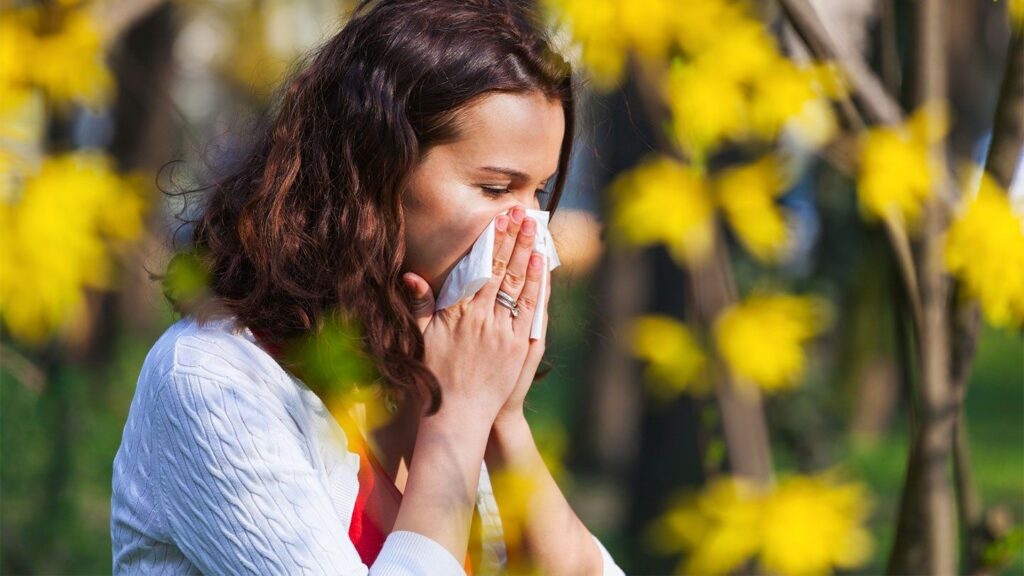Good: Research suggests that people tend to outgrow allergy severity as they age. Boys tend to outgrow allergies as they approach adolescence and adulthood, whereas more females are affected by asthma and atopic disease in adulthood than males. According to the NIH, there is a large portion of the elderly population developing allergies that did not have them before. It is estimated that 5-10% of the elderly population has allergies of some nature. It is important for patients and providers to consider allergies as a potential cause of upper respiratory symptoms when evaluating the elderly population.
Bad: Sometimes people start with the wrong medication to treat allergic rhinitis. While it has been commonly accepted to start with OTC antihistamines, such as Benadryl, Allegra, Zyrtec, Claritin and their generic equivalents, medical-based evidence suggests that treatment should start with an intranasal steroid spray such as Flonase or Nasacort. These can often mitigate symptoms to the point that people do not need to use any additional medications. Recent evidence suggests that repetitive use of Benadryl increases the likelihood of developing Alzheimer’s, especially when used in older ages. Most experts acknowledge that the best treatment for allergies is immunotherapy. This treatment involves exposure to the allergen, with the dose of exposure increasing as tolerance and time pass, leading to greater tolerance of the immune system to these allergens and causing less of a histamine response. The decreased histamine response creates fewer allergy symptoms for the sufferer, making dealing with these allergens much easier as time passes.
Ugly: Trees, grass, and weed pollens are major culprits of seasonal allergies, and indoor allergens can be year-round. Often, a person’s allergies do not depend on where they live, but rather what their immune system decides to react to. Trees begin pollinating in February and continue through May, grass varieties pollinate in May, June, and July, and ragweed is a hardy weed that begins pollinating in August through November. It is very difficult for anyone with significant allergies to any of these pollens to get any amount of relief until a hard freeze occurs. Only then can people contend with indoor allergens they may have in their homes.
Behavior modifications: There are mediating behaviors people can employ to decrease their response to these allergens. Anyone spending any time outdoors should take a shower when coming indoors, as this helps wash off the allergens and decrease histamine response. If it is necessary to work outdoors, wearing an N-95 mask while mowing or during yard work can help decrease exposure. Histamine-rich foods to avoid include alcohol, bananas, tomatoes, citrus foods, chocolate, wheat germ, and beans.
Alternative treatments: There are a variety of non-traditional medications that people try to decrease their exposure to pharmaceutical medications. Quercetin is a flavonoid found in certain foods that can help prevent cells from releasing histamine. Vitamin C and Vitamin D3 supplements are also proposed to have benefits. Some people support eating local honey as a way to decrease histamine response to local pollens, but this theory is largely debunked, as bees typically ingest pollens from flowers and not the pollens that cause most people’s seasonal allergy problems. These alternative treatments do not have FDA support as they have not been studied extensively, but there is plenty of evidence online and anecdotal that they are helpful in combating seasonal allergies in a less pharmaceutical approach.
Resources:
- Gender difference, sex hormones, and immediate type hypersensitivity reactions – Chen – 2008 – Allergy – Wiley Online Library
- Allergy and Aging: An Old/New Emerging Health Issue – PMC
- Allergy Immunotherapy | Allergy Treatment | ACAAI Public Website
- Quercetin Information | Mount Sinai – New York
- AAFA Explains: Can Honey Help My Seasonal Allergies?

